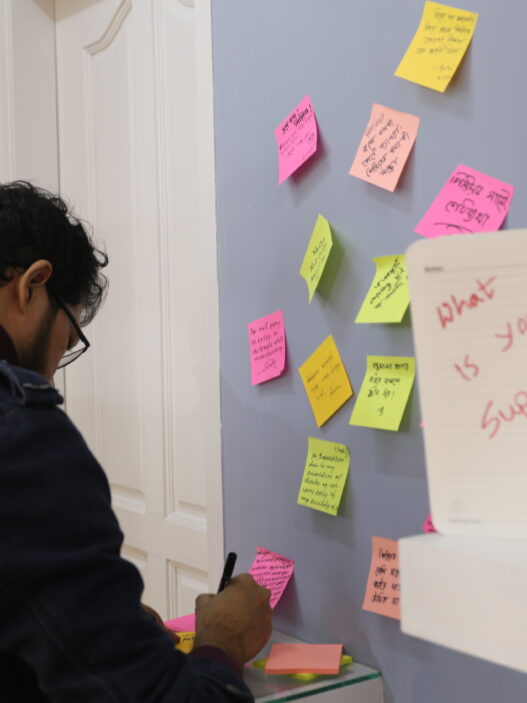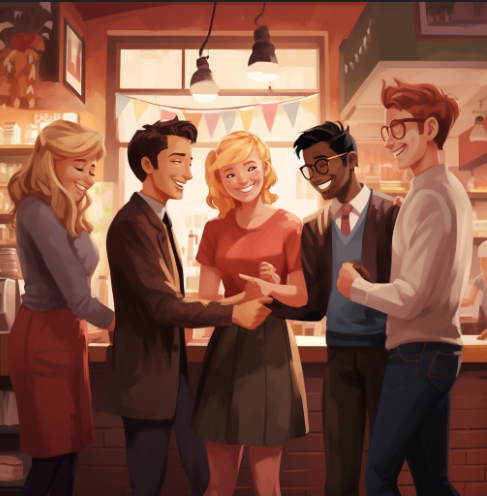Dipannita gazed at the flickering lights of Kolkata from her apartment window, the city alive with movement, yet she felt frozen in place. She had always believed in love as a slow bloom—something that layered itself gently, like brushstrokes on a canvas. When she met Nanda Raj Nano online, she thought she had found someone who understood her pace, her need for connection without pressure.
In the beginning, their relationship was a quiet comfort. They both detested phone calls, preferring texts that stretched across the day like an unbroken thread of conversation. She had thought they were on the same page—two people content with a love that did not demand physical validation. But as the years passed, something within her shifted.
Dipannita realized she craved intimacy—not in the conventional sense, but in the language of lingering hugs, whispered words, and small gestures of affection. She longed for tenderness, for the simple reassurance of being loved in the way she understood love. But Nano remained unchanged. He was aromantic, uninterested in romance or its intricate expressions. To him, their relationship was already whole—companionship in words, presence in absence.
They rarely met. The thirty-hour journey between Kolkata and Chennai was an unforgiving distance, and in five years, they had only seen each other a handful of times. Dipannita tried to hold on, convincing herself that love was patience, that Nano’s way of being didn’t invalidate their bond. But each unanswered yearning felt like another thread snapping loose in a frayed tapestry.
She had hoped he would meet her halfway, that he would at least try to understand why exchanging selfies made her feel closer to him, why occasional flirtation made her feel special. But he never reciprocated, never saw the need for such things. It wasn’t that he was cruel—he simply did not experience love the way she did. And that truth, however unintentional, hurt more than anything.
When the breakup finally came, it was quiet. No fights, no accusations—just an unspoken understanding that their paths could no longer align. At thirty-seven, Dipannita found herself adrift. Many of her peers had children preparing for board exams, some were already planning their daughters’ weddings. She, meanwhile, had just let go of a relationship she once believed could lead to marriage.
She tried to explain to Nano, hoping he would see that he was aromantic while she had developed romantic feelings for him. But Nano struggled with shame, unwilling to acknowledge his identity. He insisted that his lack of romantic attraction didn’t mean he was heartless—he simply loved differently than she did.
The more expressive Dipannita became about her feelings, the more tension grew between them. As part of the first generation of the asexual and aromantic movement, neither of them had a roadmap for navigating these challenges. They cared for each other deeply, but their differing ways of expressing love left them disconnected, unable to bridge the growing chasm between them.
The loneliness that followed was suffocating. She had spent years convincing herself she had found her person, only to realize that love, in its many forms, was still elusive. Some days, the weight of it pressed down on her so heavily that she could barely breathe. The thought of starting over, of navigating the world alone, felt impossible.
Yet amidst the grief, there was also a quiet clarity. She had not lost herself. She had loved—deeply, honestly. And even though it hadn’t been enough to bridge the gap between them, it had still been real. Maybe love, for her, would always be different, something unconventional, something harder to find. But she refused to believe it was impossible.
One day, she would meet someone who spoke her language of love.
Dipannita stared at her phone screen, hesitating. Her thumb hovered over the ‘Sign Up’ button of the asexual dating app she had discovered during countless sleepless nights.
She believed she wouldn’t die alone—but until that day came, she would learn to be enough for herself.









